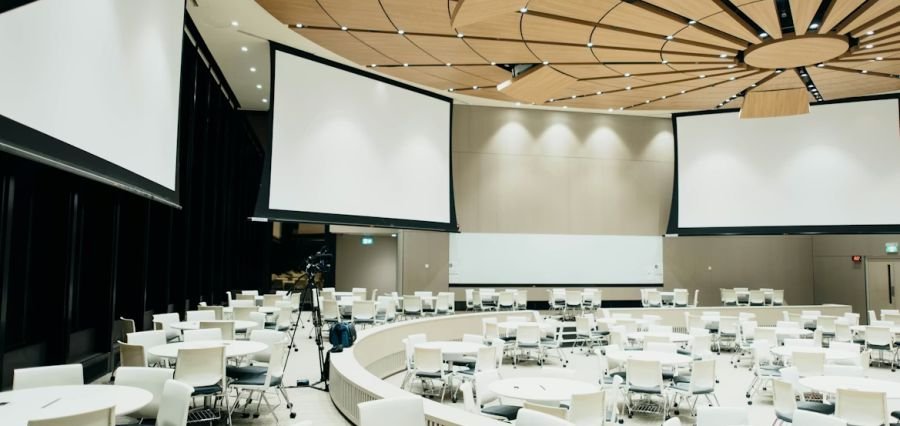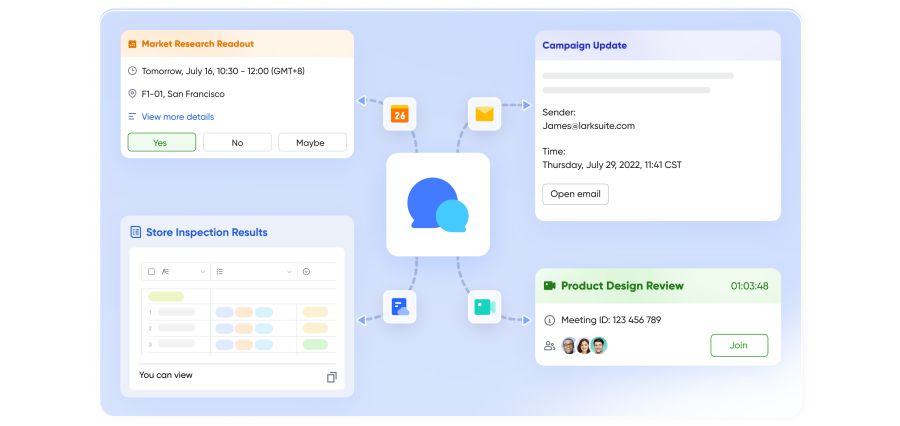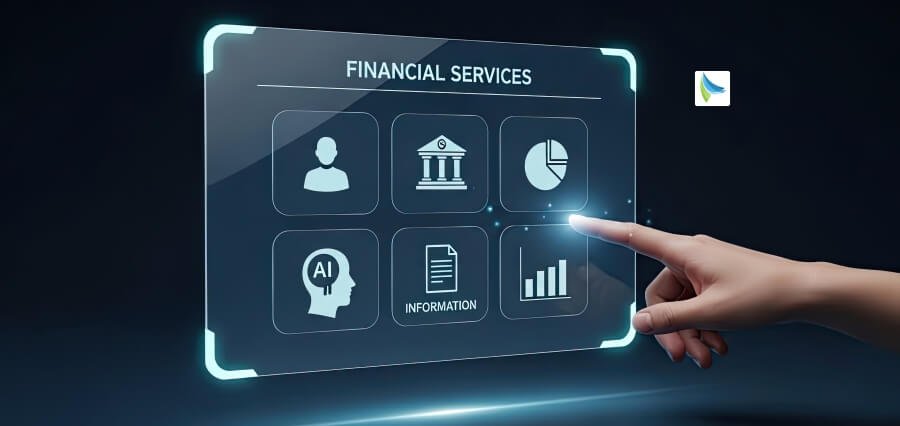A guest walks into the lobby after a long day of travel. They’re greeted warmly, the room is already prepared to their preferences, and dinner reservations are confirmed without a hitch. To the guest, this looks simple. But behind the scenes, hotel staff have coordinated across departments, managed approvals, and tracked schedules to create the impression of effortlessness.
This is the paradox of hospitality: the smoother the guest experience, the more complex the work happening in the background. When managers search for the best project management tools, they often find that hospitality requires more than simple task tracking. What they need is a system that connects front desk staff, housekeeping, catering, and management so every detail works in harmony. Lark provides that foundation, allowing hotels, resorts, and event venues to deliver memorable experiences without visible stress.
Coordinating staff instantly with Lark Messenger
In hospitality, requests don’t wait. A guest may need an early check-in, a meeting room may require last-minute setup, or a wedding party might request extra seating. If communication lags, service quality drops. Lark Messenger eliminates that risk by keeping staff connected in real time.
Front desk staff can message housekeeping when a room turns over early, or loop in maintenance if a technical issue arises. Group chats can be set up by department, event, or guest profile. Threaded replies keep each request organized, while reactions allow staff to confirm tasks instantly.
Imagine a corporate guest arriving hours before standard check-in. The front desk posts the update in Messenger. Housekeeping confirms when the room is ready, and catering arranges a welcome snack — all within minutes. The guest experiences seamless service, while staff enjoy the clarity of structured communication.
Managing schedules and bookings with Lark Calendar
Hospitality depends on schedules — from check-in times to banquet setups. A missed reservation or overlapping event creates friction that guests will notice immediately. Lark Calendar centralizes these timelines so nothing slips through the cracks.
Managers can use shared calendars to post staff shifts, room turnovers, catering timelines, or event bookings. Tasks created directly in Lark will sync to Calendar and appear in it automatically, aligning the smallest details with major milestones. Permissions ensure sensitive entries, like VIP arrivals or executive meetings, are only visible to authorized staff.
For instance, consider a beachfront resort hosting a destination wedding while also managing a corporate conference. With Calendar, catering sees both event schedules, housekeeping knows when to prepare rooms for large groups, and managers maintain oversight of the entire property’s flow. Instead of overlapping commitments, the day runs smoothly.
Documenting service standards with Lark Docs
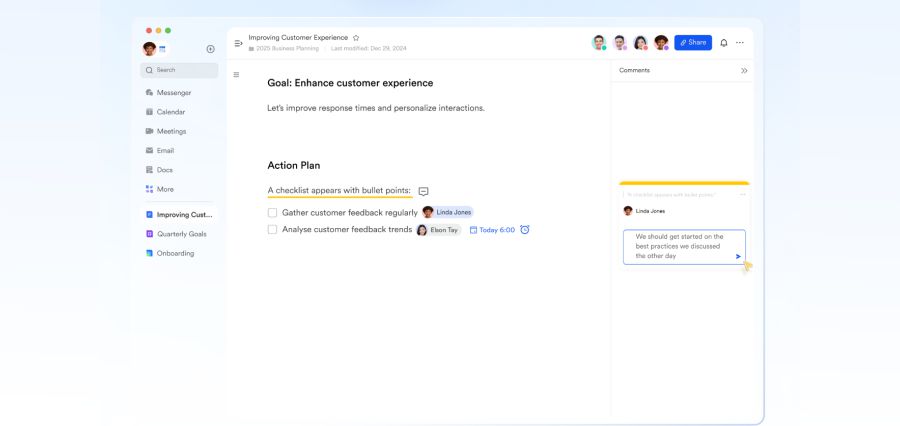
Consistency defines hospitality. Guests expect the same standard of care across locations, departments, and shifts. Achieving that requires clear documentation that staff can trust. Lark Docs creates a single space for service manuals, SOPs, and training materials.
A hotel group might store guest service guidelines in Docs. Trainers update them as policies evolve, managers annotate with practical notes, and compliance staff ensure standards align with regulations. Version history makes edits traceable, and permission settings control who can view or edit each file.
Picture a new property opening under an established brand. With Docs, staff across the chain share updated training guides instantly. Every location delivers the same guest experience, reinforcing the brand promise.
Streamlining operations with Lark Approval
Hospitality involves constant approvals — guest discounts, vendor invoices, event changes, or procurement for supplies. Delays in approvals can directly impact guest satisfaction. Lark Approval digitizes these workflows, making them fast and accountable.
Staff submit requests directly in Lark Approval, managers review them quickly, and outcomes are documented for records. This eliminates bottlenecks and ensures traceability.
Here, Lark demonstrates its strength as business process management software. For example, a banquet manager might request additional decor for a wedding reception. The request moves through Approval, leadership authorizes the expense, and vendors receive confirmation in time for setup. Guests see a beautiful hall without realizing how close the approval came to the deadline.
Coordinating guest services with Lark Base
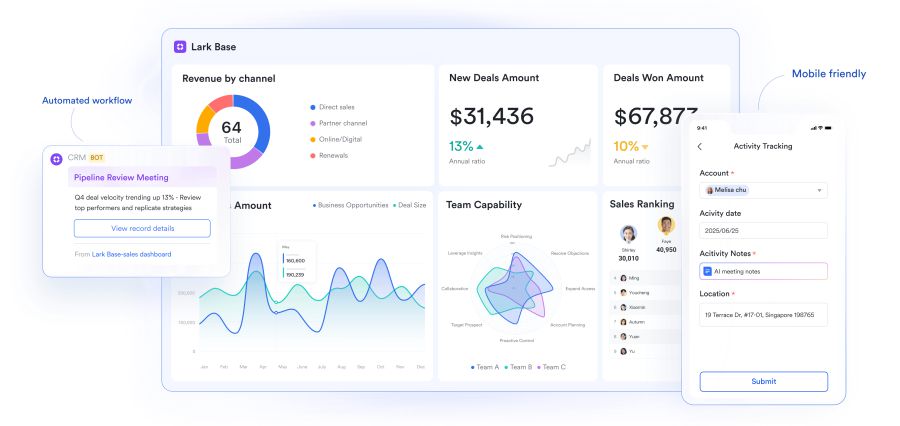
Behind every smooth guest experience lies a network of moving parts — room turnovers, catering orders, maintenance requests, and special guest preferences. When these details are spread across spreadsheets or messages, service can slip. Lark is a CRM app, and within it, Base gives hospitality teams the structure to coordinate operations without missing a beat.
In Base, managers can build tables to track guest requests, schedule room preparation, or monitor event setups. Custom views allow front desk staff to see immediate priorities, while department heads track progress across the entire property. Automations keep workflows moving by triggering alerts when tasks are overdue or updating statuses once requests are resolved.
For example, during a luxury wedding weekend, Base can map every detail — from floral deliveries to VIP room preferences — ensuring that catering, housekeeping, and guest services stay in sync. Guests see flawless service, while staff rely on Base to keep complex operations organized behind the scenes.
Holding daily briefings with Lark Meetings
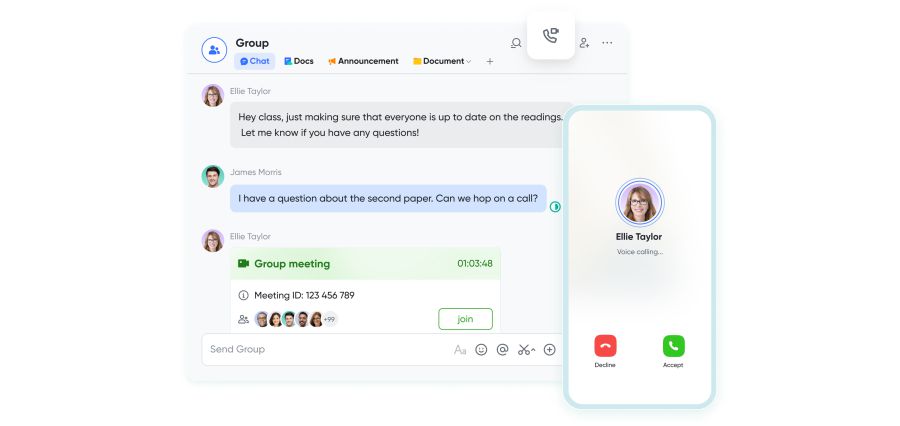
Hospitality thrives on daily coordination. Every morning, teams gather to review arrivals, departures, special events, and staffing needs. But if these discussions aren’t documented, important details may be forgotten. Lark Meetings makes briefings actionable.
During calls, notes are generated automatically. After the meeting, it will be stored in Docs as a textual summary. While recordings can be shared in Messenger. Staff who miss the meeting still see the updates, ensuring no one is left behind.
Consider a hotel hosting a sports team. The morning briefing outlines dietary needs, room requirements, and event schedules. With Meetings, these details are documented and shared across departments. Housekeeping, catering, and management all act from the same playbook.
Preserving brand standards with Lark Wiki
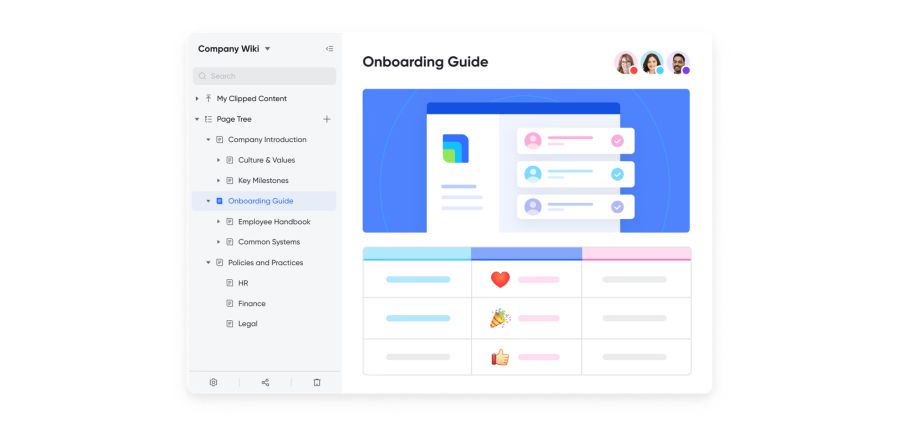
Hospitality brands succeed when service feels consistent across properties. Lark Wiki provides the platform for preserving institutional knowledge — from guest service scripts to brand-wide standards.
Departments can publish FAQs, onboarding guides, or training modules. New employees learn faster, and experienced staff have a reliable reference. Over time, Wiki becomes a living record of the brand’s culture and methods.
For example, a chain of boutique hotels might publish its brand philosophy and detailed service checklists in Wiki. Whether guests stay in Paris or Singapore, they experience the same thoughtful touches that define the brand.
Conclusion
Hospitality businesses succeed by hiding the complexity behind smooth experiences. Guests never see the scheduling, approvals, or coordination that make their stays feel effortless. With Lark Messenger, Calendar, Docs, Approval, Meetings, and Wiki, teams create a backstage system that ensures every front-stage interaction delights.
At the same time, long-term guest satisfaction depends on building strong relationships beyond a single visit. That’s is where Lark can also come to help as a comprehensive platform. By adopting Lark, hospitality businesses gain more than efficiency. They create the structure that allows staff to focus on what matters most: making guests feel valued. And when guests feel cared for, they come back — turning seamless service into lasting loyalty.

